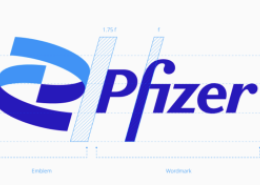Prevenar 13® Indication Extended in Japan
Adults 65 or older can now be immunized with the same Pneumococcal Conjugate Vaccine used in children.
Pfizer Japan Inc. announced today that Prevenar 13® (Pneumococcal 13-valent Conjugate Vaccine) has been granted approval in Japan for the prevention of pneumococcal disease caused by 13 S. pneumoniae serotypes (1, 3, 4, 5, 6A, 6B, 7F, 9V, 14, 18C, 19A, 19F, and 23F) in adults 65 years of age and older. This expanded indication will make it possible for elderly people to be immunized with a pneumococcal conjugate vaccine for the first time in Japan.
Since November 2013, Prevenar 13® has been recommended for children 2 months through 6 years of age, under the pediatric national immunization program for the prevention of invasive pneumococcal diseases caused by vaccine-type S. pneumoniae.
Prevenar 13® consists of pneumococcal polysaccharides linked to a carrier protein. By activating cell-mediated immunity, this vaccine produces an effective immune response in infants whose immunization systems are immature and in elderly people whose immunization systems are declining, thereby establishing immunological memory that will play a crucial role when they have pneumococcal infections in the future.
Koichi Kanno, Vice President, Vaccines of Pfizer Japan Inc. said, “Given Japan’s rapidly increasing aging population, it is our social responsibility to help elderly people enjoy healthier lives. We believe that Prevenar 13 will play a vital role in protecting against S.pneumoniae, which is one of the leading causes of pneumonia and the third leading cause of mortality in Japanese seniors. We look forward to working with the Ministry of Heath, Labor and Welfare to ensure that Prevenar 13 can be quickly incorporated into the adult national immunization program in Japan for the prevention of pneumococcal diseases, which will begin on October 1, 2014.”
■ About Prevenar 13®
Prevenar 13® contains six additional pneumococcal strains (serotype 1, 3, 5, 6A, 7F and 19A) in addition to seven strains (4, 6B, 9V, 14, 18C, 19F, 23F) covered by Prevenar, which was launched in 2010. Among the six additional strains, serotype 19A has been increasing globally and presents a relatively high antibiotic resistance rate.
Prevenar 13 for the use in children was approved in Europe in December 2009 and in the United States in February 2010. Currently, Prevenar 13 is approved in over 120 countries and has been introduced to routine immunization programs for children in 83 countries including the United States, the United Kingdom, Germany and France.
As of June 2014, Prevenar 13 is approved for use in adults mainly 50 years of age and older in 101 countries, including the U.S., European Union (EU) and Asian countries such as South Korea.
[DISCLOSURE NOTICE: The information contained in this release is as of June 20, 2014. Pfizer assumes no obligation to update forward-looking statements contained in this release as the result of new information or future events or developments.
This release contains forward-looking information that involves substantial risks and uncertainties regarding Prevenar 13, including its potential benefits. Such risks and uncertainties include, among other things,the uncertainties inherent in research and development; whether and when Prevenar 13 will be included in the adult national immunization program in Japan; uncertainty regarding the commercial success of the use of Prevenar 13 in adults age 65 years and older in Japan; and competitive developments.
A further description of risks and uncertainties can be found in Pfizer’s Annual Report on Form 10-K for the fiscal year ended December 31, 2013 and in its subsequent reports on Form 10-Q and Form 8-K.]
Media Contact:
Jennifer Kokell
212-733-2596







